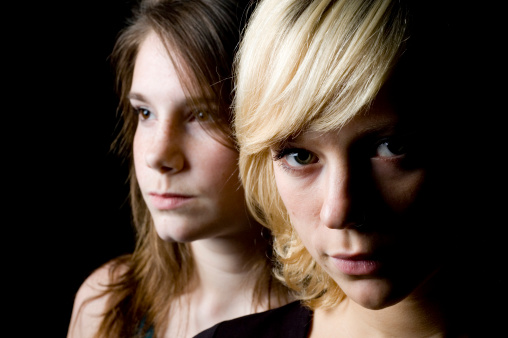 A new report from the Centers for Disease Control (CDC) found that 57% of teen girls felt persistently sad or hopeless in 2021—double that of boys and nearly 60% more than the highest level reported over the past decade. What role is social media playing in this disturbing decline?
A new report from the Centers for Disease Control (CDC) found that 57% of teen girls felt persistently sad or hopeless in 2021—double that of boys and nearly 60% more than the highest level reported over the past decade. What role is social media playing in this disturbing decline?
According to the CDC, while all teens reported increasing mental health challenges, experiences of violence, and suicidal thoughts and behaviors, girls fared worse than boys across nearly all measures.
The analysis includes 2021 data and trends from the Youth Risk Behavior Survey (YRBS), which examines health behaviors and experiences among U.S. high school students. Youth mental health has continued to worsen—with particularly stark increases in widespread reports of harmful experiences among teen girls:
• 30% seriously considered attempting suicide—up nearly 60% from a decade ago.
• 18% experienced sexual violence in the past year—up 20% since 2017, when CDC started monitoring this measure.
• 14% reported being forced to have sex – 27% since 2019 and the first increase since CDC began monitoring this measure.
• 52% of LGBQ+ students had recently experienced poor mental health and more than one in five (22%) attempted suicide in the past year.
So what does the CDC recommend we do about this problem?
“While their primary goal is academic learning, schools can take evidence-based steps to foster the knowledge, skills and support needed to help prevent and reduce the negative impact of violence and other trauma and improve mental health,” the CDC said in a press release. “Schools can provide education that equips teens with essential skills, such as understanding and ensuring true sexual consent, managing emotions, and asking for what they need. Schools can also connect teens to their classmates and communities through school-based clubs and community outreach,”
It all sounds good, but experts say it’s not enough.
“That’s a band aid approach,” says Catholic League president Bill Donohue. “We need something stronger. Schools should ban smartphones from the classroom.”
 What do smart phones have to do with it?
What do smart phones have to do with it?
As Donohue points out, researchers have long understood the negative effects of too much social media on our teens, particularly among girls. He cites the work of psychologist Richard Weissbourd who said, “girls are more likely to be obsessed with social media, and especially with stories about attractiveness and body image. This accounts for their higher rates of alcohol and drug use than boys.”
Jean Twenge, author and psychology professor with an expertise in this area, agrees and says that “we’ve known from academic research for many years that the longer a teen girl spends on social media, the more likely she is to be depressed and to engage in behaviors like self-harm [such as] cutting.”
Even worse, studies have found that heavy social media users tend to be impulsive, a behavior trait related to addictions to sex, drug, alcohol, the internet and other risky behaviors.
To prove the point about the dangers of too much social media, Donohue documents the success some schools have had by banning smartphones from the classroom.
“Buxton School in Williamstown, Massachusetts banned smartphones at the beginning of the academic year last summer. The boarding school also banned teachers from having access to their phones on campus. Other schools have similar rules,” Donohue writes.
Buxton school official Franny Shuker-Haines explained why this decision was made. “I don’t think we need to wait any longer to see enough evidence of the mental health toll those devices are taking on teenagers,” she told Donohue. On social media, the user is “meant to respond quickly and harshly. You’re meant to extend conflict. You’re meant to promote the most inflammatory or outrageous idea,” she explained.
None of this leads to a good place for a teen, which explains why, in a study published earlier this month in the journal Psychology of Popular Media, a group of Canadian teens and young adults reported feeling better about their appearance and body weight after cutting their social media time by 50 percent for a mere three weeks.
“If more students, especially teen girls, got into the habit of not being obsessed with social media—and spent more time interacting with their peers in person—their mental health problems would abate,” Donohue said. “Too many young people are needlessly allowing technology to take control of their lives.”
We’re social animals, he says, which means we need to bond with each other – in person – not on cell phones!
And, “If we are really courageous, we might even try bonding with God. In addition to achieving saving grace, we know from voluminous studies that people of faith have far fewer mental health problems than their secular counterparts. That’s a win-win.”
Exposing teens girls to positive messages about themselves is also a win-win. Our Young Women of Grace program does just that. In addition to the social benefits of bringing girls together in a group, it also builds their self-esteem by exposing them to the truth of who they are – daughters of God who have been imbued with a feminine genius that is vitally important to the health of our world. Click here for more information!
© All Rights Reserved, Living His Life Abundantly®/Women of Grace® http://www.womenofgrace.com









